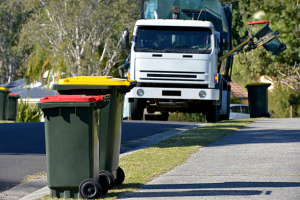

This blog explores how pavement recycling works, its benefits for communities and businesses, and why choosing skilled contractors is essential for success.
Why Sustainability Matters in Pavement Construction
Sustainable construction is more than just a trend in British Columbia—it’s becoming the standard. Urban centers like Burnaby are experiencing rapid growth, which puts pressure on infrastructure while also raising environmental concerns. Pavement recycling addresses several issues at once:
- Reduces the volume of construction waste sent to landfills
- Lowers greenhouse gas emissions by minimizing the need for new material production
- Conserves natural resources like aggregates and bitumen
- Improves cost efficiency for municipalities and property owners
When handled by experienced pavement contractors, recycling delivers both environmental and financial advantages.
What is Pavement Recycling?
Pavement recycling is the process of reusing reclaimed asphalt pavement (RAP) and reclaimed concrete material (RCM) to construct new roads, driveways, and paved areas. Rather than discarding old materials, they are processed and incorporated into new mixes.
There are several methods used in BC:
H3: Hot In-Place Recycling (HIR)
This technique involves heating and reprocessing the existing asphalt surface on-site. It restores pavement without completely removing it.
H3: Cold In-Place Recycling (CIR)
CIR uses specialized equipment to mill and mix old asphalt with binding agents at ambient temperatures. It’s energy-efficient and ideal for medium-traffic roads.
H3: Full-Depth Reclamation (FDR)
FDR pulverizes the entire pavement layer and base material, mixing it with stabilizers to create a strong foundation for new pavement.
Comparing Pavement Recycling Methods
| Recycling Method | Best For | Environmental Impact | Cost Efficiency |
| Hot In-Place Recycling | Surface-level repairs | Moderate savings | Cost-effective |
| Cold In-Place Recycling | Medium-traffic roads | High savings | Very efficient |
| Full-Depth Reclamation | Severely damaged pavements | Maximum material reuse | High efficiency |
Each approach provides unique benefits depending on the pavement’s condition and the project’s sustainability goals.
Benefits of Pavement Recycling in BC
1. Environmental Conservation
Pavement recycling reduces the need for new quarrying and asphalt production, cutting down on carbon emissions and energy consumption.
2. Cost Savings
For municipalities and property owners in Burnaby, recycled materials are significantly more affordable than purchasing new aggregates.
3. Durability
Recycled pavement often results in stronger and more resilient surfaces, particularly when reinforced with modern additives and binding agents.
4. Faster Project Turnaround
Since materials are reused on-site, projects are completed faster with reduced transportation needs.
Why Experienced Pavement Contractors Are Essential
While the benefits of pavement recycling are clear, achieving them depends on skilled contractors who understand local conditions in Burnaby and the wider BC region. Poorly executed recycling can lead to premature deterioration, safety issues, and wasted investment.
Professional pavement contractors provide:
- Technical expertise in recycling methods suitable for BC’s climate
- Quality control during material processing and application
- Compliance with provincial and municipal regulations
- Long-term value through proper installation and maintenance guidance
Conclusion
Pavement recycling is transforming sustainable construction across Burnaby and the rest of British Columbia. By combining eco-friendly practices with long-term cost savings, this approach supports stronger, greener infrastructure.
If you’re considering a project and want expert guidance, contact us today learn more about recycling options and tailored pavement solutions.
Trusted expertise from Bortolo & Sons Paving Co Ltd ensures your pavement investment is both sustainable and built to last.
Frequently Asked Questions (FAQ)
1. What is the main advantage of pavement recycling?
The biggest advantage is sustainability—recycling reduces waste, conserves natural resources, and lowers overall project costs.
2. Can recycled pavement be as durable as new materials?
Yes. When handled by skilled pavement contractors, recycled asphalt and concrete often match or exceed the performance of new materials.
3. Is pavement recycling suitable for residential driveways in Burnaby?
Absolutely. Both homeowners and municipalities benefit from cost-effective and durable recycling solutions.
4. Does pavement recycling reduce project timelines?
Yes. On-site recycling eliminates the need to transport materials, leading to faster project completion.
5. How does BC’s climate affect recycled pavement performance?
Contractors account for rain, freeze-thaw cycles, and temperature fluctuations to ensure recycled materials perform reliably in local conditions.
6. Is pavement recycling more affordable than traditional paving?
Generally, yes. Using reclaimed materials significantly reduces costs compared to sourcing entirely new aggregates and asphalt.
